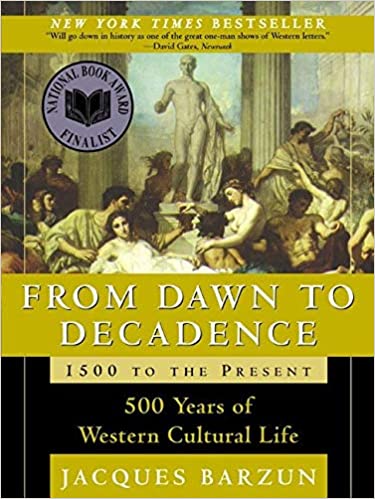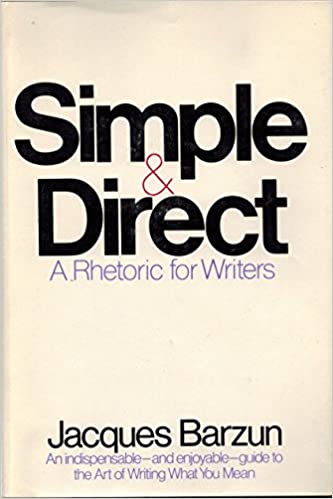From Dawn to Decadence: 1500 to the Present: 500 Years of Western Cultural Life
Highly regarded here and abroad for some thirty works of cultural history and criticism, master historian Jacques Barzun has set down in one continuous narrative the sum of his discoveries and conclusions about the whole of Western culture since 1500.
Barzun describes what Western Man wrought from the Renaissance and Reformation down to the present in the double light of its own time and our pressing concerns. He introduces characters and incidents with his unusual literary style and grace, bringing to the fore those that have been forgotten or obscured. His compelling chapters—such as "Puritans as Democrats," "The Monarchs' Revolution," and "The Artist Prophet and Jester"—show the recurrent role of great themes throughout the era.
The triumphs and defeats of five hundred years form an inspiring saga that modifies the current impression of one long tale of oppression by white European males. Women and their deeds are prominent, and freedom (even in sexual matters) is not an invention of the last decades. And when Barzun rates the present not as a culmination but a decline, he is in no way a prophet of doom. Instead, he shows decadence as the normal close of great periods and a necessary condition of the creative novelty that will burst forth—tomorrow or the next day.
Only after a lifetime of separate studies covering a broad territory could a writer create with such ease the synthesis displayed in this magnificent volume.
More info →Simple & Direct: A Rhetoric for Writers
In Simple & Direct, Jacques Barzun, celebrated author and educator, distills from a lifetime of writing and teaching his thoughts about the craft of writing. In chapters on diction, syntax, tone, meaning, composition, and revision, Barzun describes and prescribes the techniques to correct even the most ponderous style. Exercises, model passages — both literary and unorthodox — and hundreds of often amusing examples of usage gone wrong demonstrate the process of making intelligent choices and guide us toward developing strong and distinctive prose.
More info →

